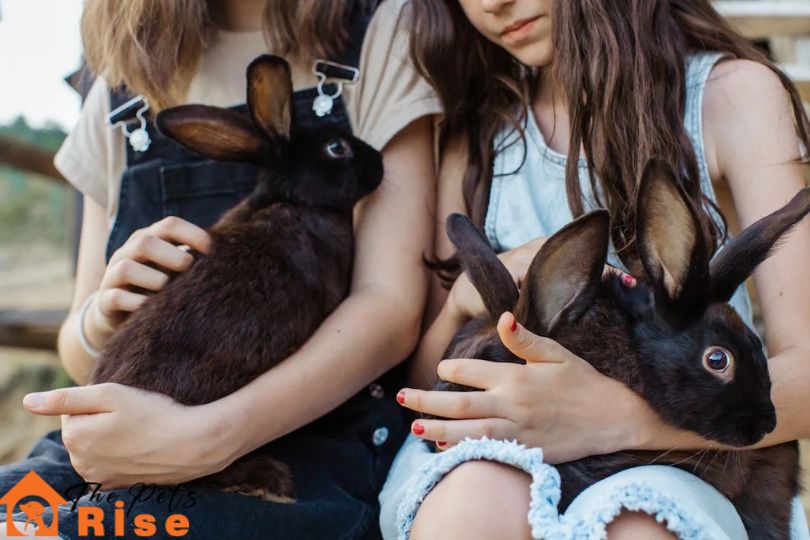Do you know the cost of owning a rabbit? Yes, rabbits as pets for an average pet lover can be an intimidating option without a doubt. However, if you are already looking for a rabbit care guide as you want to own one then mind the fact that there are several other things related to owning a pet rabbit.
Just like the average cost of owning a dog, the cost of owning rabbits should also be considered. While the cost varies, depending on the area you are living the consideration shouldn’t be overlooked. So here is our simple yet crucial guide about the average cost of owning a rabbit. Continue reading below.
The Basics: What’s the Real Cost?
Okay, let’s cut to the chase. You might be wondering, “What will be the cost of owning a rabbit?” Well, there are several considerations such as rabbit health cost, rabbit vet visits, and others. The truth is, that the cost of owning a rabbit goes beyond the initial adoption fee. Here’s a quick rundown of the expenses you’ll encounter:
-
Adoption Fee
The first thing you’ll dish out is the adoption fee. The cost of adopting a rabbit can vary widely depending on where you live and where you adopt from. On average, you might shell out around $20-$40 pet store, and $5-$20 from a rabbit shelter. But it could be more if you go for a purebred or a rescue that’s already spayed or neutered.
-
Rabbit Hutch and Supplies
Let’s talk about the cost of pet rabbit supplies. Your floppy-eared friend needs a cozy place to call home. A rabbit hutch or cage, along with bedding, food bowls, water bottles, and litter boxes, can set you back anywhere from $50 to $250. Remember to keep your bunny warm in winter. Opt for quality stuff; your bunny deserves nothing but the best!
-
Rabbit Food
Bunnies love to munch, and they have specific dietary needs. The average cost of owning a rabbit can vary depending on the quality of the food. High-quality rabbit food, hay, and fresh veggies will cost you about $20 to $60 per month. So, make sure you’ve got room in your budget for their gourmet tastes.
-
Rabbit Veterinary Cost
Now one of the crucial parts of the cost of pet rabbits. Regular vet check-ups, vaccinations, and spaying/neutering can cost you anywhere from $200 to $500 annually. Oh, and don’t forget the occasional unexpected vet visits; rabbits can be quite the little daredevils.
-
Toys and Enrichment
To keep your furry friend happy and entertained, you’ll want to invest in toys and enrichment activities. Think tunnels, chew toys, and puzzle feeders. Expect to drop around $10 to $30 on these goodies.
-
Grooming Supplies
Rabbits’ behavior can be weird if they don’t have enough physical and mental stimulation. Rabbits are meticulous groomers, but they might need a helping hand now and then. A brush and nail clippers will cost you about $10 to $20.
-
Emergency Fund
Life happens, and rabbits are prone to health issues. You should add emergency funds to the average cost of pet rabbits as well. It’s a good idea to set aside some emergency funds for those unexpected vet bills. Shoot for about $500 to $1,000, just in case.
-
Training and Socialization:
If you want a well-behaved bunny, consider the cost of training and socialization classes. This can add another $50 to $150 to your annual expenses.
-
Rabbit-Proofing
Rabbits love to chew on anything they can get their teeth into. Rabbit-proofing your home with safe electrical cords and furniture covers might cost you around $50 to $100.
-
Miscellaneous Expenses
Let’s not forget to add those little odds and ends, like treats, vitamins, and any special equipment for your rabbit in the cost of pet rabbits. They may need it due to health issues. Plan for another $50 to $100 a year for these extras.
The Heartbreaking Part: Saying Goodbye
Okay, let’s talk about something a bit somber—the cost of having a rabbit put down. It’s not a pleasant topic, but it’s an important one to consider. When your beloved bunny reaches the end of their journey, you may face euthanasia costs.
The cost of having a rabbit put down can range from $50 to $100. It’s not just about the money, though. It’s about giving your furry friend a humane and painless farewell. Make sure to discuss this with your vet and be prepared for the emotional toll it can take.
So What’s the Average Cost of Owning a Rabbit?
So, let’s tally it all up. The average cost of owning a rabbit can vary widely, but if we’re talking ballpark figures, you’re looking at:
- Adoption Fee: $25 to $75
- Rabbit Hutch and Supplies: $50 to $250
- Rabbit Food: $20 to $60 per month
- Veterinary Care: $200 to $500 annually
- Toys and Enrichment: $10 to $30
- Grooming Supplies: $10 to $20
- Emergency Fund: $500 to $1,000
- Training and Socialization: $50 to $150 annually
- Rabbit-Proofing: $50 to $100
- Miscellaneous Expenses: $50 to $100 annually
When you add it all up, the first year of rabbit ownership can cost you anywhere from $750 to $1,500. Subsequent years may be slightly less, but don’t forget those ongoing expenses. Keep in mind that these figures can vary widely depending on your location and the specific needs of your bunny.
How To Reduce The Cost Of Having A Rabbit?
Yes, the overall cost of having a rabbit can be intimidating for the first time. However, with a little budgeting and planning, you can make rabbit ownership work without breaking the bank. Here are some tips to help you keep those costs in check:
-
Adopt, Don’t Shop
Consider adopting your rabbit from a rescue organization or animal shelter. Adoption fees are often lower than purchasing from a breeder, and you’ll be giving a loving home to a rabbit in need.
-
Buy in Bulk
Another way to reduce the cost of having a rabbit is to buy in bulk. Stock up on rabbit food and supplies when they’re on sale or in bulk to save money in the long run.
-
DIY Rabbit Toys
Get crafty and make your rabbit’s toys and enrichment items. They’ll appreciate the effort, and you’ll save a few bucks.
-
Health Insurance
You can reduce the cost of pet rabbit adoption by considering getting pet health insurance for your rabbit. It can help offset unexpected medical costs.
-
Regular Check-Ups
Invest in preventive care. Regular check-ups can catch health issues early, potentially saving you money on emergency vet visits.
-
Rabbit-Proof Smartly
Rabbit-proof your home strategically. Focus on areas your bunny frequents most to save on rabbit-proofing costs.
-
Emergency Fund
Start building that emergency fund early. It’ll give you peace of mind and financial security when you need it most.
-
Quality Over Quantity
Invest in high-quality rabbit food and supplies. They might cost a bit more upfront, but they can save you money in the long run by promoting good health.
-
DIY Grooming
Learn to groom your rabbit at home. It’s a bonding experience, and you’ll save on grooming costs.
-
Consider a Roommate
If it’s feasible for your living situation, consider adopting a pair of rabbits. They’ll keep each other company, reducing the need for as much human interaction and entertainment.
Conclusion: The Joyful Price of Bunny Love
In the end, the cost of owning a rabbit is not just about dollars and cents; it’s about the priceless joy and companionship these cute furry creatures bring into our lives. Sure, there are expenses to consider, but with a bit of planning and budgeting, you can provide your floppy-eared friend with a happy, healthy life without breaking the bank.
So, if you’re ready to take the leap into the world of rabbit ownership, go ahead! Embrace the fluff, the floppiness, and the fantastic company these little creatures offer. The cost of having a rabbit as your companion is worth every penny, and the love and laughter they bring into your life. You cack this top-rated pet blog for more pet care tips and guides.







